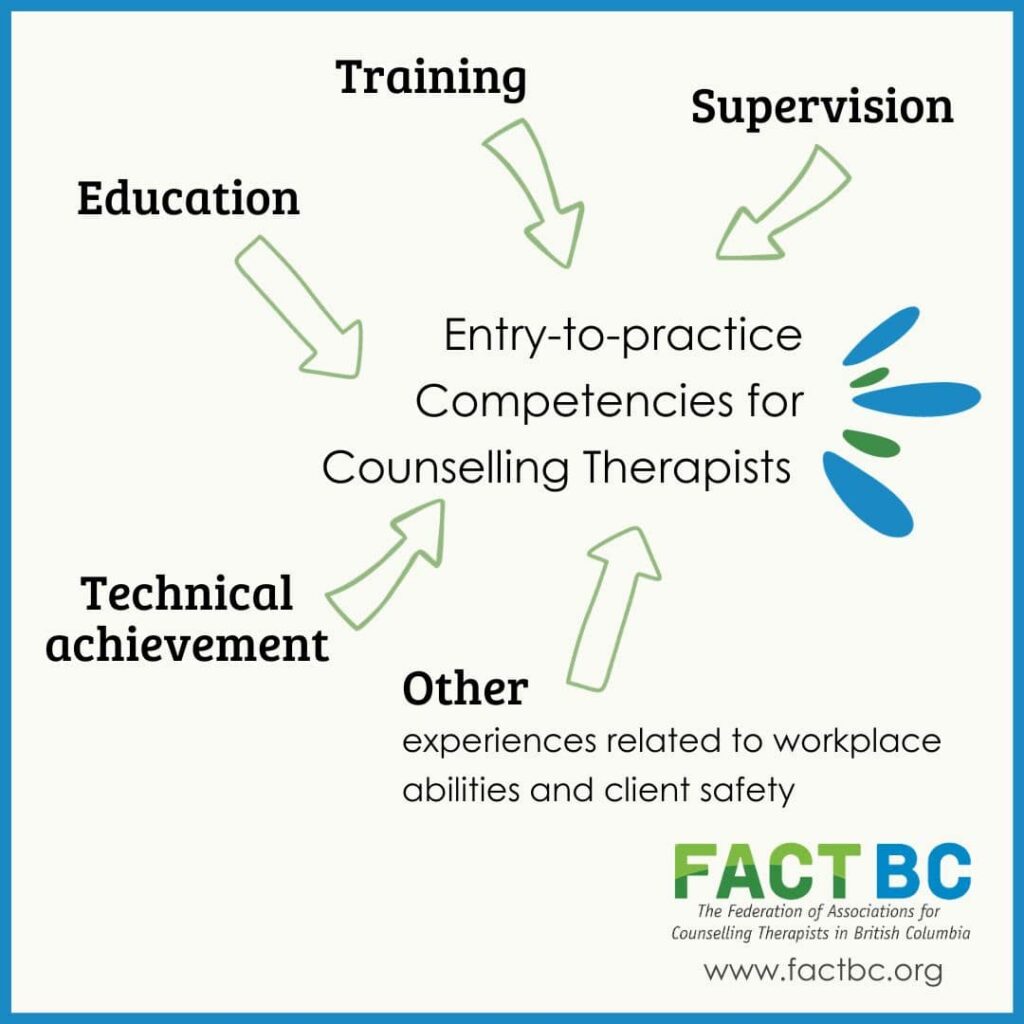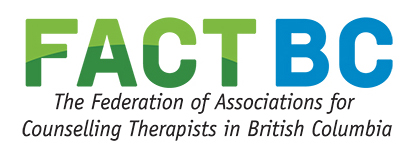Question: What quality characterizes registrants in health profession colleges?
Professional competency. That is what registered status means.
Across Canada, regulated health professionals from nurses and midwives to acupuncturists and dietitians — all are required to meet registration requirements for which competency is the underlying metric. Many health professions require applicants to actively demonstrate their proficiency in the profession’s entry-level competencies.
Question: How do we define our profession’s competencies?
The Entry-to-Practice Competency Profile for Counselling Therapists defines our fundamental competencies. It includes 125 competencies organized under functional headings within four practice areas as follows:
Area 1. Foundations
Area 2. Communication and relationships
Area 3. Professionalism
Area 4. Counselling Therapy Process
The competencies listed in the profile should be regarded as an integrated set of abilities, each competency informing and qualifying the others; competencies are not intended to be used in isolation.
Question: What is the history of the Competency Profile?
From 2004-2006, a dedicated group of BC counselling therapists and educators developed the first Entry-to-Practice Competency Profile for Counselling Therapists. It was revised in 2007 following a national consultation and validation process. In 2016, FACTBC updated the competency profile and in 2019 added an indigenous component. Since its inception, FACTBC’s Entry-to-Practice Competency Profile for Counselling Therapists has been used by counselling therapy professionals and regulators across Canada, serving as a foundational document for the profession.
Question: Where do those professional competencies come from?
Competencies are the desired outcome of education, training, technical achievement, supervision, and other experiences related to workplace abilities and client safety.

Question: Why is FACTBC committed to a competency-based registration model?
- A competency-based model acknowledges that there are multiple paths to acquiring the knowledge and skills required to do a job well
- A competency-based model recognizes that competencies are developmental and evolutionary and that levels of proficiency increase in regularly-performed practice tasks
- Entry-to-practice competencies provide a necessary baseline of professional proficiency
In 2016, FACTBC updated the competency profile and in 2019 added an indigenous component. Since its inception, FACTBC’s Entry-to-Practice Competency Profile for Counselling Therapists has been used by counselling therapy professionals across Canada in a multitude of capacities.
View FACTBC’s Entry-to-Practice Competency Profile for Counselling Therapists (2019)

The competences to enter to prentice does not seem to have moved us any further to becoming a college. In 2018 there was a firm commitment from government to establish a College of Counselling Therapists. ACTA have done the hard work, now all the government have to do is sign on the dotted line. I won’t cost them any money and it does provide safety for the public.
Can you please tell why the government refuse to sign? What else can we do to move things along so we can become a college. By not being in a college “a regulated profession”…..has cost me potential jobs and massive loss of income.
Our new Minister of Health: LaGrange
Smith told reporters, adding that LaGrange’s priorities, “will be to improve Albertans’ access to doctors and other health professionals, reducing wait times and working with people in the medical sector to find innovative ways to improve the health-care system.”
Given that we have a new Minister of Health, do you think this will improve our chances for a College?